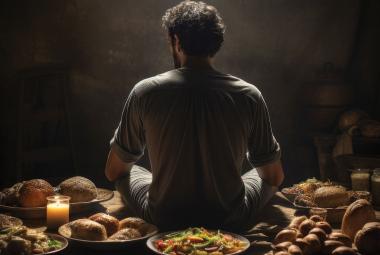Every week I go out of my way to speak to teenagers just to see what's going on in their minds. Too often the answer is, "Nothin'." Public school students seem to have this glassy, disorganized, disoriented look about them. They're preoccupied with things that don't matter, especially image and conforming to peer pressure. I really do keep trying to argue myself out of this observation, but it grows inexorably the more teens I interview. So tell me, where is this socialization the government school crowd always promotes as the reason for not home schooling?
When home schooling took on serious momentum two decades ago, educrats chanted the mantra that home schoolers couldn't possibly get the same quality education that students in public schools had, nor could their parents teach them because they weren't qualified to do so. However, as home school scores on standardized tests soared above public school scores and home schoolers took top positions in national academic competition, that argument went down in flames, although some ideologues will try to resurrect it every now and then.
Needless to say, home school's success was embarrassing for the educrats, who then contradicted their earlier arguments by complaining it wasn't fair to allow home schoolers in national competition because they had an unfair advantage over public schoolers. After all, those educated at home had more one-on-one time from those same parents the educrats originally said were too incompetent to educate their children!
Time for a New Mantra
The latest mantra asserts that home schooled kids - although possibly better educated - just can't be socialized in a home school setting. Once again experience is showing just the opposite. The lack of social presence in public school teens is a direct result of the "socialization" of our educational system. Thanks to the elitists, today's public school students are taught dialectically rather than didactically. They are taught that there are no absolute facts or morals, and a thought process based on feeling and collective thinking has been substituted for individuality and logical, rational thought. History has been revised to match politically correct guidelines and the basis for belief in one's culture destroyed.
A large part of public curriculum is devoted to shaping attitudes and beliefs into a relativist, socialist mindset rather than educating the students in the basics and the classics, which served a previously literate country well for generations. This accounts for the glassy look that so many public school students exhibit - nothing going on upstairs. In talking with them, many would like to have something going on but just don't know what or how because their dialectic public education didn't teach them how to achieve it. The bottom line on the dialectical model is "group think"; without a group, the individuals can't think.
Home schoolers, on the contrary, have escaped the morass of public educational theory and returned to the traditional form of didactic education: facts, phonics, mathematics, self-responsibility, and logical thought. It shows. Colleges are soliciting home schoolers because they can think uniquely and out-perform their public school peers. Home schoolers are bringing fresh, creative air into an otherwise stuffy academic environment, which is why it represents such a threat to the education establishment.
So what about socialization? It doesn't really happen in public high schools because those are abnormal environments. Nowhere in life - not even in the military - will one be associating strictly with people of one's own age or be subjected to massive amounts of mind-numbing, conformity-inducing peer pressure, which has nothing to do with real life. Moreover, they will be confronted with a myriad of moral and sometimes physical hazards that their relativistic education leaves them singularly unprepared to face. "Just say no" doesn't cut it without a solid, absolute, moral basis for saying "no."
The stratification of students into age-related peer groups has choked off the ability of teens to model from and communicate with those older than one's self, which is how maturational development is supposed to occur. It used to happen that way when students were educated at home or in small schools where the ages were mixed. One learns to be an adult from adults; not from other teens pretending to be adults. In any stratified school situation, the students are forced to model after each other - the blind leading the blind.
Combine deprivation from normal inter-age interaction with the imposition of values and beliefs contrary to their parents and one finds the adult-teen "communication gap" so widely posed as "normal"; another problem created by socialization in public education. It is also the source of "normal" teen rebellion, which isn't normal at all. It's one thing to teach youth to be independent and self-sustaining but that doesn't require rebellion. Teen rebellion is the product of communication cutoff between teens and parents because they spend the majority of their day apart and, in the case of teens, in an artificial environment called public education.
Reality Shock
The moment teens leave high school, the majority of the so-called socialization is found to be worthless. No one cares about their feelings or image. "What can you do?" and "What do you know?" are the real questions. Once public schoolers emerge from high school, they discover that all the socialization skills they learned in dealing with peer pressure don't apply in the real world. Meanwhile, the inter-age communication skills they need are sorely lacking. Most public schoolers I've met can't think or express themselves clearly and concisely and have a very distorted view of both history and society, imposed upon them by a radical leftist curriculum (see Worldview Wars for further study).
Home schoolers, I have found, are much better integrated, being as conversant with adults as with peers on a wide range of topics. They are skeptical of much of the peer-pressure nonsense their public school peers accept so readily because they have found they can truly be individuals without fear.




